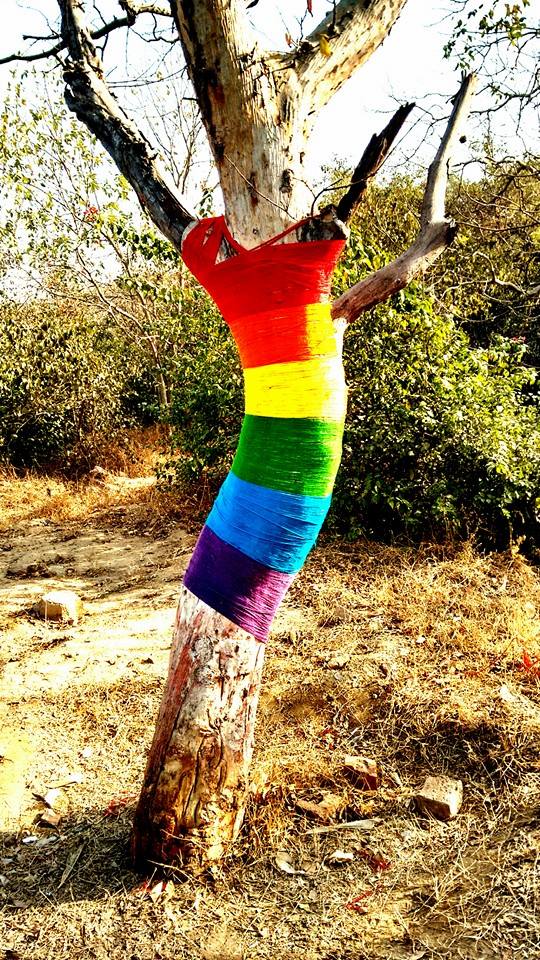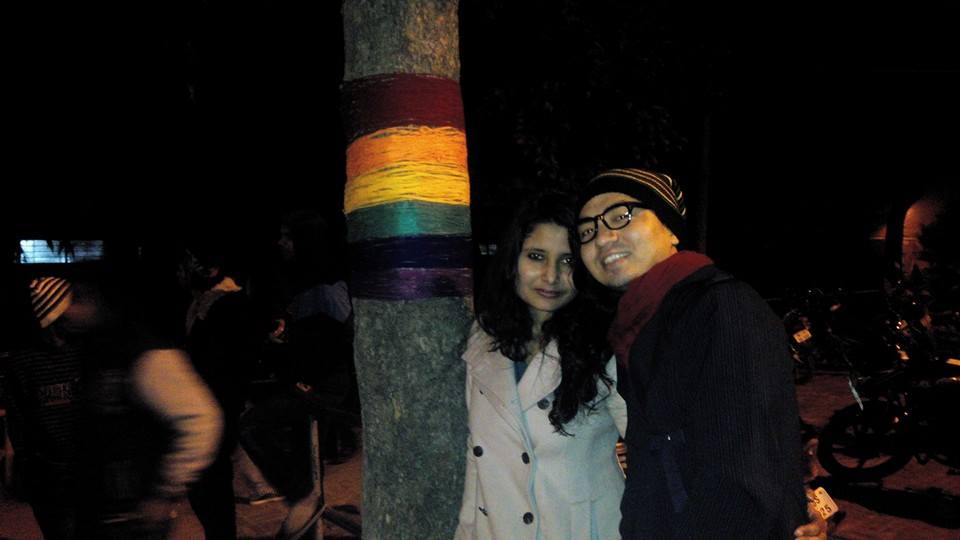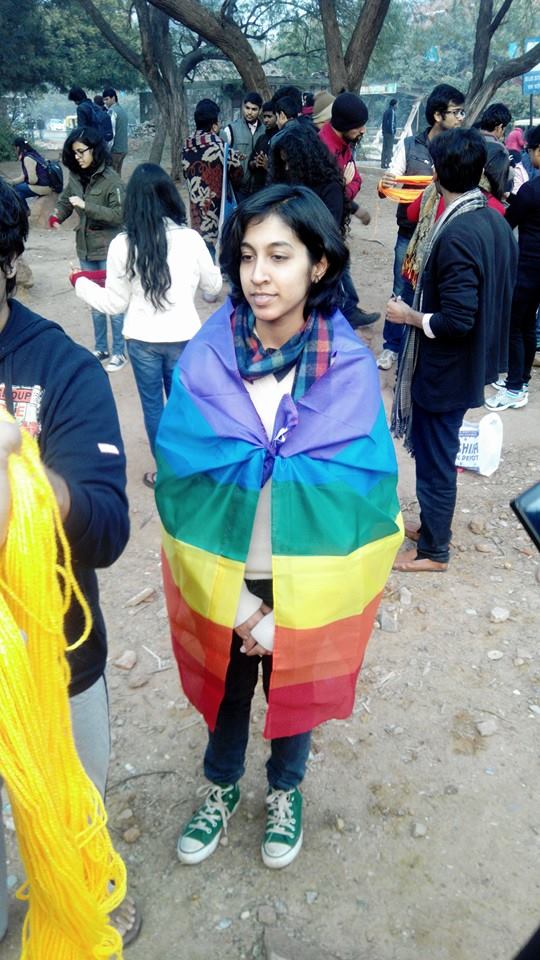In December, students wrapped rainbow-coloured swatches of thread around a tree near a bus stop close to the campus as a mark of protest against the Supreme Court judgment that upheld criminalisation of homosexuality. That symbolic “rainbow tree” was found vandalised on the morning of December 29.
To protest against that defacement and to promote the idea of gender diversity, JNU students organised a Rainbow Walk on the campus last Friday. For five hours, led by members of the LGBT community, they sang songs, shouted slogans and went around wrapping trees around the campus with rainbow-coloured thread. They even painted a zebra crossing in rainbow colours.
However, shortly after the walk, one of the trees was found vandalised again.

Photo: Shehla Rashid
“It must have been done by some homophobic people between 2am and 6am when the guard is not around,” said Gourab Ghosh, organiser of the walk. “We have redone the tree but the opposition to homosexuality doesn’t seem to stop on campus.”

Photo: Gourab Ghosh
According to Ghosh, these are not the first instances of prejudiced behaviour in JNU. The queer societies on campus, such as Anjuman and Dhanak, have often faced resistance from the authorities, he said.
“Their posters and flyers are religiously torn and vandalised, and the members often face taunts and harassment,” said Ghosh. “When Roselle Pineda, a Filipino Communist lesbian came to speak, the ABVP [Akhil Bharatiya Vidyarthi Parishad], a right-wing outfit, tried to disrupt the talk in every possible way.”
Students from the university feel that protests are important to keep hatred at bay from the campus. “This is outright hatred – for diversity and difference. It comes from those who oppose interfaith marriage and any expressions of cultural difference,” Shehla Rashid, a student at the university. “The walk, an assertion of the right to differ, is a crucial political act in today’s times, when we are being asked to believe in one language, one religion and one national interest.”
Another participant at the walk, Joie Bose, wrote a small poem to describe her feelings about the vandalism.
And every time you crush
Even a withered leaf
Of my rainbow tree
I will know
And will laugh at your mangled heart
Concealed within the porous grey concrete,
My laughter will resonate
With the echoes of the crackling leaf...
Here are some more pictures from Friday's walk.

Photo: Gourav Singh

Photo: Gourav Singh

Photo: Shabir










